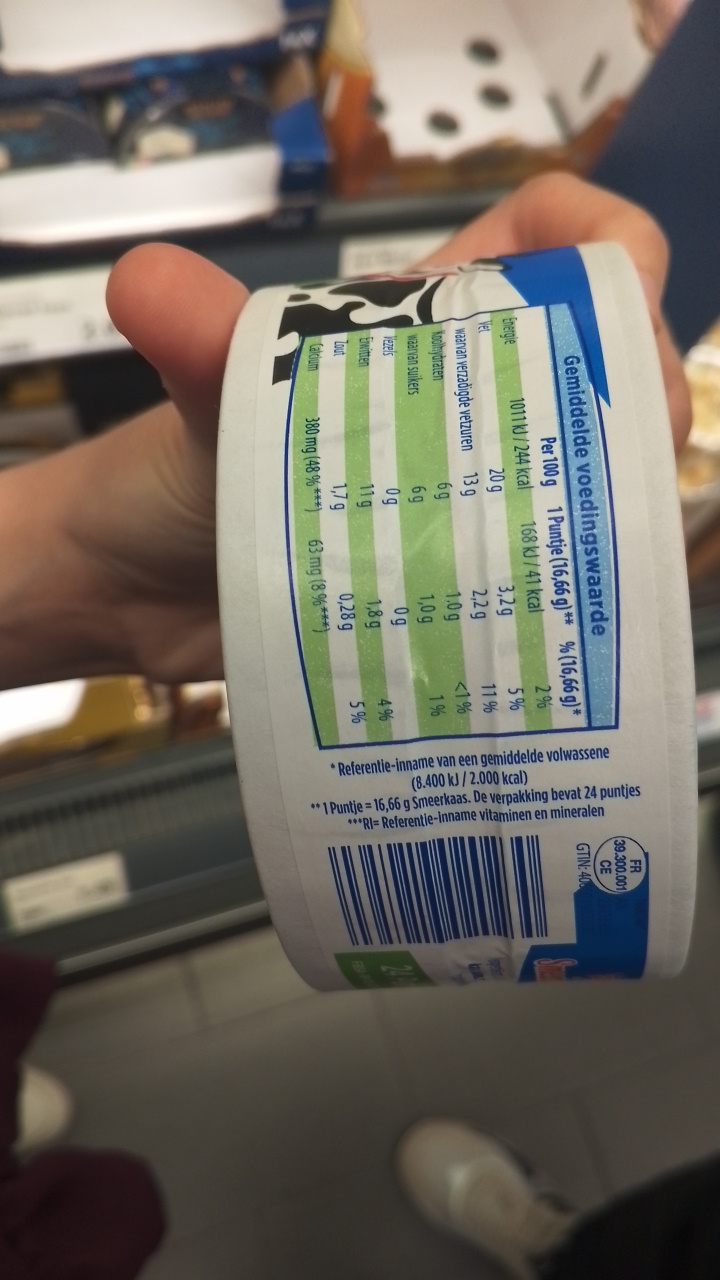
Barcode: 4065019020230
smeerkaas
HALAL
📝 Reason: All ingredients in ‘smeerkaas’ (spreadable cheese) are basic nutritional components of dairy products and pose no halal concern according to Islamic law. There are no haram E-codes or known animal-derived rennet, nor any meat or doubtful substances. Provided all components are from dairy, it is Halal (Quran 5:3). For cheese, concern only arises if haram enzymes or non-Halal rennet are present, not listed here. IFANCA and www.foodchemadditives.com confirm these as halal if derived from milk.
🏷️ Category: Cheese
📄 Certificates: Vegetarisch
Ingredients:
Details
Understanding the Halal Status of Smeerkaas
Smeerkaas, or spreadable cheese, is a delightful dairy product enjoyed by many. However, for those adhering to a Halal diet, it’s essential to understand its Halal status. Fortunately, we can confirm that smeerkaas is indeed Halal. This conclusion is based on the ingredients listed in its composition.
Ingredients Breakdown
The ingredients in smeerkaas include: vet, waarvan verzadigde vetzuren, koolhydraten, waarvan suikers, vezels, eiwitten, lout, and calcium. Let’s take a closer look at each of these components:
- Vet: This general term for fat in smeerkaas mainly refers to milk fat. It is Halal as long as it is derived from cow’s milk and does not contain any mixed haram substances. There’s no indication of any animal source other than dairy.
- Waarvan verzadigde vetzuren: These are saturated fatty acids, components of the fat listed above, most likely also derived from milk fat. No evidence points to a haram source here, confirming its Halal status.
- Koolhydraten: Meaning carbohydrates, these are sugar molecules typically sourced from plant or dairy products. There’s no alcohol fermentation involved, so they are also Halal.
- Waarvan suikers: The sugars found in smeerkaas, likely lactose, are fully Halal as long as they do not come from non-Halal sources.
- Vezels: Dietary fibers are generally plant-derived, and no evidence suggests any haram origins in the context of dairy products.
- Eiwitten: The proteins in smeerkaas are likely casein or whey from milk. Provided there’s no addition of haram enzymes or animal rennet (which is not indicated here), these proteins are also Halal.
- Lout: It’s suspected that this may be a typo for ‘zout,’ which means salt—an ingredient that is typically Halal. If the term ‘lout’ is indeed intentional, there’s insufficient evidence to classify it as haram.
- Calcium: This mineral, which may be part of the nutritional content of dairy, is usually Halal. If used as an additive, most food-grade calcium compounds are considered Halal.
Halal Certification and Consumer Trust
It is essential for consumers seeking Halal products to look for credible certifications. Smeerkaas is vegetarisch certified, which further ensures that its ingredients are in line with vegetarian and Halal dietary laws. Certification bodies like IFANCA reaffirm the Halal status of dairy products, provided that they’re derived from compliant sources.
Moreover, many reputable brands that produce smeerkaas adhere strictly to Halal requirements. This practice serves to build trust among consumers who must ensure their food choices align with their religious beliefs.
Conclusion
In summary, smeerkaas stands as a tasty and Halal-friendly cheese option that fits well within a diverse range of diets. All ingredients are in accordance with Islamic dietary laws, and their Halal status is reinforced by the commonly accepted guidelines. Therefore, if you’re in search of a delicious, spreadable cheese that meets Halal criteria, smearing on some smeerkaas can certainly be added to your shopping list!
